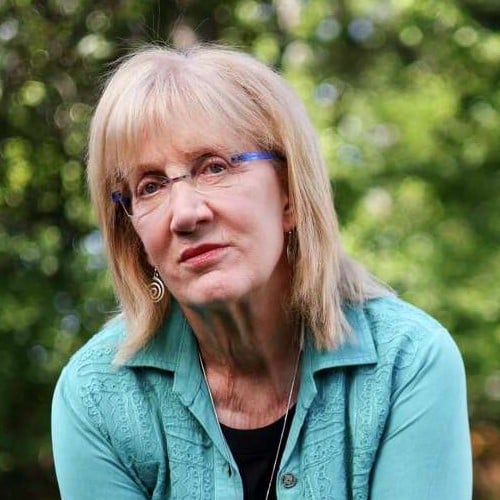ustxtxb_obs_1962_02_16_50_00004-00000_000.pdf
Page 8
riorough BRYANT AND ALGER Notes From Dallas Don Yarborough is young, vigorous, and independent. On the genuinely important state issues his approach is . direct and imaginative. At long last in Texas we are witnessing the unfolding of a campaign committed to the proposition that our government, in a state of great natural wealth and untapped potential, is third-rate and shouldn’t be. “Why can’t it be the best?” That is his message. More than any other man in this race he senses the role of the governor in “speaking out for programs not immediately popular but vital to our progress,” and he is the only candidate who begins with the premise that our state government, as the men who have controlled it, has been “rooted in the habits and conformities of another . era.” His appearance on statewide TV last week, we understand, made quite Texas conservatives, as might be expected, have come out hell-for-leather against Kennedy’s proposed department of urban affairs. The usual charade is being re-enacted. The feds are moving in again on the prerogatives of the states ; the states can take care of their own responsibilities, as ever; out in the shadows there is European socialism at work once’ more. It is the same storyold, bitter, uncomprehending. Our cities everywhere rot and decay. Our polyglot urban areas are centers of mass disorganization. Our pressing social problems, mostly unmet, breed in the cities. It is one of the tragedies of modern American conservatism, and one of the larger travesties of its less sophisticated Texas cousinry, that practically every attempt toward meaningful social reform since 1933 has been countered largely with glandular unrealities. How many Texas conservatives of either party, we would ask, have expressed concern over the problem of inequitable representation in our state legislature? In a special report of the Texas Institute of Public Affairs, published elsewhere in this issue, we see once more the disturbing extent to It is a pleasure to endorse Woodrow Wilson Bean, one of Texas’ most flamboyant political practitioners, in the race for congressman-at-large. He is a young man and already a legend. His campaign will be much like a house on fire; since he plans to barnstorm in most of the state’s 254 counties, Observer readers need only wait and see. In the early ‘forties, when Bean was a member of the Texas House, he was one of that small handful of men three or four or fivewho stood with the laboring man and “the people.” These were the lean years, but he and his compadres helped chart the path that led, two decades later, to the first legislative breakthrough of what Don Yarborough has called “that magnificent one-third of the legislature.” As county judge of El Paso County, Bean has been outspoken, controversial, and responsive to the needs of the community. He has been a good friend and ally of the Latins, and it was no suprise that he was rewarded almost without any competition the PASO endorsement last weekend. He was largely responsible for another port of entry into Mexico, and he led the movements in El Paso for a home for the aged and for an expanded hospital district. He calls himself “a Democrat without apology, prefix, or suffix,” and as a congressman he can be expected to give full support to the Kennedy administration. His political style, like Don Yarborough’s, is florid, rambunctious, torrential, out of the older West. Perhaps it is of no little significance that, as with the younger Yarborough, the an impression. There is a contagious quality about shooting high, about experimentation and reform, ab’out attracting the best talents and brains in the state into co-operation with the projects of state government. His message is catching on. Yarborough, as a political unknown two years ago, ran a splendid race against Ben Ramsey. With support in the offing from labor, the liberals, the minorities, the loyal Democrats, the average voters asking for a bracing change in Austin, his chances this time are excellent. He supports the goals of the Kennedy administration ; rare in a statewide Texas candidate, he sees Texas as part of the larger perspective. For these reasons and many more we wholeheartedly encourage his candidacy. which the state’s most complex urban areas are underrepresented. As it is, far too many big-city conservatives now in the Texas legislature fail to understand or refuse to cope with the genuine social needs of their metropolitan constituencies. Houston conservatives in the House, for instance, do not even vote for an industrial safety act so direly needed in a heavily industrial state. A token juvenile parole system fails to pass the special session. How can a state legislature systematically gerrymandered against the modern era even hope to begin to meet the demands of a society in which three-fourths of the people now live in metropolitan areas? The 1955 Eisenhower intergovernmental relations commission warned: “If the states do not give cities their rightful allocation of seats in the legislature, the tendency will be toward direct federal-municipal dealings.” For decades conservatives have controlled state government, and state government has remained stagnant and unresponsive. These Texas critics of the present administration’s social programs would be doing themselves a mighty service in returning for a change to first causes. spirit and verve of the old frontier may help bring Texas at long last into the New. We have received a number of queries, one or two from indignant Republicans, about the reproduction of the picture we ran last week from the Kountze News of the GOP candidate in overalls from Woodville. Some people didn’t believe us. It was absolutely genuine. In fact, Frank X. Tolbert, the raconteur of. the Dallas News, this week corroborated our evidence. The candidate, Joe Kelley, is a forester who wants to represent Tyler, Jasper, Sabine, and Newton counties. Tolbert quotes Bob Murphey, the Nacogdoches wit and several-times Democratic attorney general: “It just isn’t fair,” Murphey said. “If this Kelley fellow is really a Republican he at least ought to wear fancy striped overalls. Striped overalls are a status symbol in East Texas.” Tolbert notes that Kelley, whose Democratic opponent is old Sam Collins of Jasper, is a free-lancer in the pine forests. He removes hardwood trees so the pines will have room to grow. He goes to work at 5 a.m. in order to campaign, overalls and all, late in the day. But, says Tolbert, he does not dip snuff, and this may prove to be his undoing. A snuff-dipping Republican in overalls in East Texas would unqualifiedly signify the beginning of the two-party era in Texas. DALLAS In North Texas one hears embarrassed explanations of the endorsement of Governor Daniel by PASO, the new Latin-American organization. Monday night at a Dallas County Young Democrats’ meeting, Pepper Garcia, legislative candidate and PASO delegate, apologized for . the endorsement, explaining that some of the members of PASO were going to have to learn how to handle “those old-timers.” Special explanations had to be offered, also, at a meeting in Fort Worth. The fact that Dr. George Sanchez quit the PASO meeting in disgust has brought forth niggling rejoinders from defenders of the endorsement. Early in the week one heard in Fort Worth the rumor that Daniel promised PASO a hundred jobs. The vote among the delegates is reported to have been 51 to 41 and a half. Wednesday night in Austin, Atty. Gen. said he heard Daniel “promise 100 highway patrol jobs to Latin-Americans.” Surely the delegates to the PASO organization, who were upset by a statement here that they should not trade out their responsibility to the long-term welfare of the people for “a mess of pottage”, owe their own members and the entire liberal community ‘a detailed explanation.. T IS CURIOUS that Southern Methodist University still refuses to admit Negroes to its undergraduate levels. Thirty-seven miles north of here, at North Texas State University, integration was accomplished without public attention beginning in 1955. One can walk through the student union building at ‘North Texas any time of day and see mingled there, although still usually in patterns of personal social segregation, the Negro and white students. Descend into Dallas and lo, the campus of the Methodist Church’s university is not only its customary handsome self, but also very white. Negroes can enter the graduate school; not the undergraduate. S.M.U. students, like others around the country, have made their opinions clear. Late last year the undergraduate schools voted for integration by a substantial margin. The dedicated integrationists among the students participated in a sit-in movement in 1960 and stand-ins this year at the Tower Theater. Negro students from Bishop College joined with them in the stand-ins. It is not an idle fact that during the Tower Theater demonstrations, the management was displaying “King of Kings,” an account of the life of Jesus Christ, off limits to Negroes. While this may strike Christians as untoward, the presiding spirits at S.M.U. –whether those who argue against any undergraduate integration until ‘it can be total, or those who apologize for the situation with blushing genuflections toward the Endowment will of course know that they must restrain their righteousness, under the circumstances, to wit, Page 689 of the Discipline of the Methodist Church, 1960, Section E. Part 2020, entitled, “The Methodist Social Creed” _ “We stand for the equal rights of racial, cultural, and religious groups Published by Texas Observer Co., Ltd. Entered as second-class matter, April 26, 1937, at the Post Office at Austin, Texas, under the Act of March 3, ‘1879. FEBRUARY 16, 1962 Willie Morris Editor and General Manager Bob Sherrill, Associate Editor Sarah Payne, Office Manager Ronnie Bugger, Contributing Editor and insist that the social, economic, and spiritual principles set forth in this creed apply to all of us. The right to choose a home, enter a school, secure employment, vote, or join a church should not be limited by a person’s race, culture, or religion.” B AXTON BRYANT is a cinch for the Democratic nomination for Congress. Then he will have a hard fight against Bruce Alger, the Republican. The prospect for him is good if he works haid and every day. Some feel he has carried his ministerial styles of speech too far into his political campaigning and needs to talk less of faith and more of politics, but he is obviously a good man who is willing to take chances for right courses of action. Rep. Joe Ratcliff’s campaign against Sen. George Parkhouse is an interesting one. Ratcliff is attacking Parkhouse for his association with the Senate’s rejection of fair spending measures and is defending his votes for the banking reforms and loan shark bills. The freshman representative is also engaging in unfortunate and unnecessary personal attacks on Sen. Parkhouse. It would be a gross mistake to think Ratcliff will ‘be a liberal senator, but he is not far from moderate, and his election could be welcomed by liberals if he will be more careful about remarks directed at Parkhouse personally. The Republican primary contest between Paul Eix and Alger leaves the Dallas conservative Democrats in a switch about the county chairmanship. Joe Bailey Humphreys, who nearly won the job last time, is running again. This time the Republicans have lost Ed Drake, the ostensibly Democratic chairman who was _always for the Republican presidential candidates. Drake ran again because there was so much publicity invested in him, barely beat Humphreys, and then resigned and let a man named Lee Smith replace him. Humphreys is running against Smith at a time when many Republicans on whom Smith could normally count to elect him Democratic chairman will have to be busy making sure Eix does not upset Alger. Humphreys figures this factor will siphon off about 25,000 of Smith’s votes. THE RIGHT-WING Democratic executive committee has also handed Humphreys a neat little issue. As Humphreys charges, they have increased the filing fee for county-chairman to $500, a large sum for a job that pays no salary. In Dallas, a serious campaign for the job, Humphreys is finding out, will cost about $7,000, anyway. It is perfectly obvious that the new high fee is aimed at Humphreys. Smith belongs to a law firm which carries Gen. Preston Weatherred along with it as “of counsel,” whatever that means. \(“The Daddy Rabbit, Weatherred, the Adolphus Tower lobbyist for just about everything reactionary, ought to be able to raise plenty of money for the campaign of a Republican trying to keep the Democrats disorganized by getting himself elected their chairman. Humphreys will go ahead and pay the $500 fee, but it is probable that he would not return contributions to help him with it. R.D. Published once a week from Austin, Texas. Delivered postage prepaid $5.10 per annum. Advertising rates available on request. Extra copies 15c each. Quantity prices available on order. EDITORIAL and BUSINESS OFFICE: 504 West 24th St., Austin, Texas. Phone GReenwood 7-0746. HOUSTON OFFICE: Mrs. R. D. Randolph, 2131 Welch, Houston 19, Texas. t C auJeJ g an Paio THE TEXAS OBSERVER 14tEL L’Frt.


